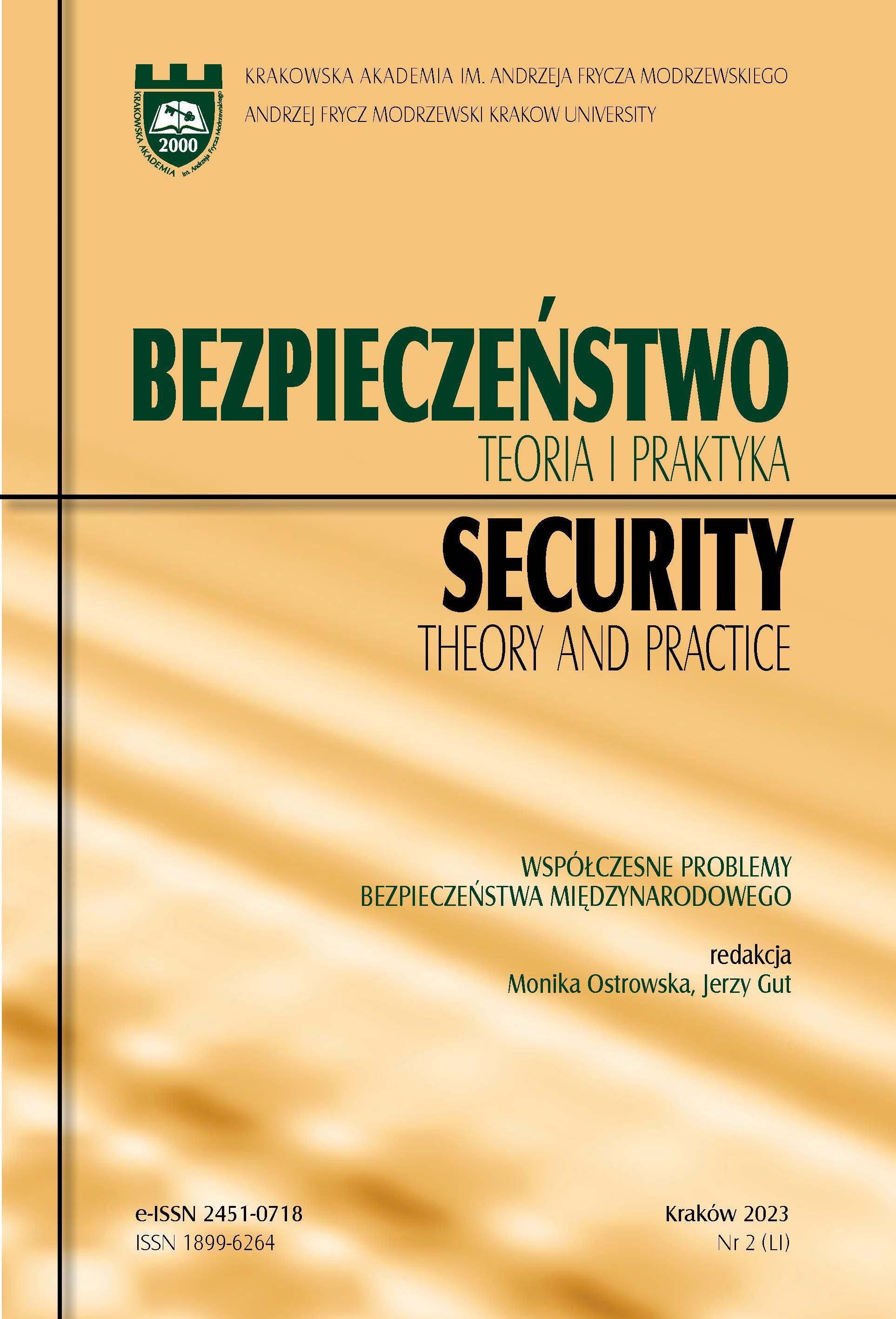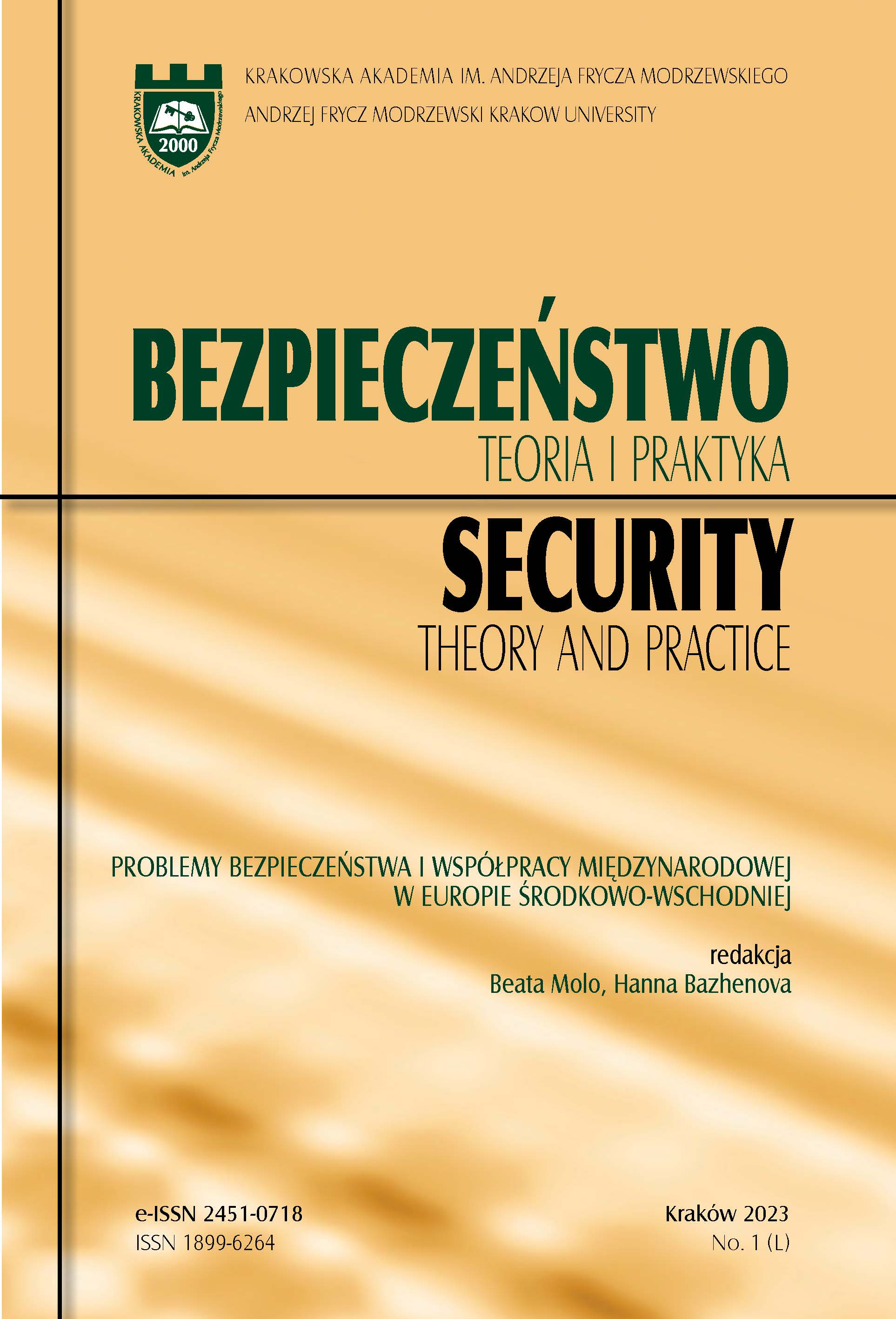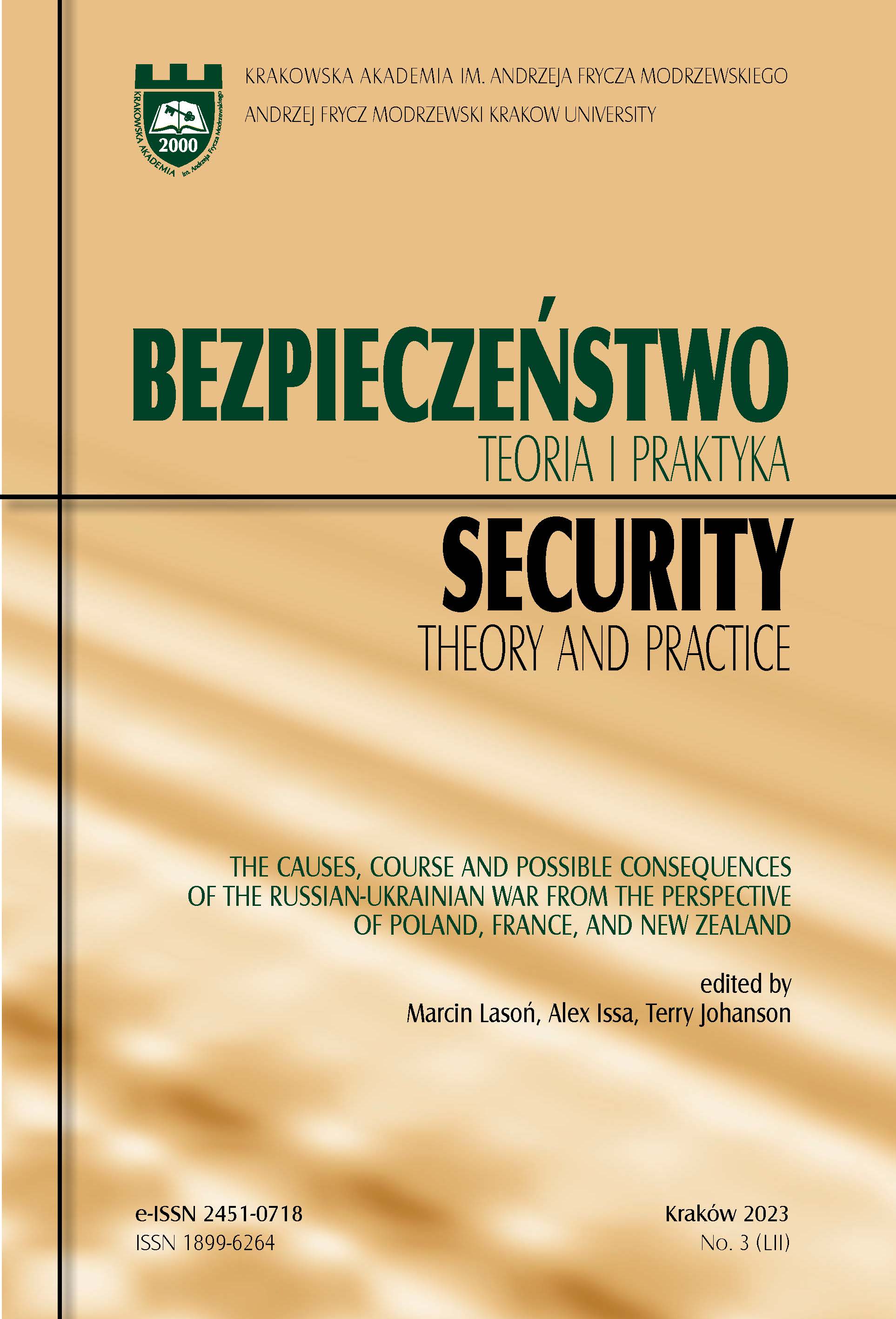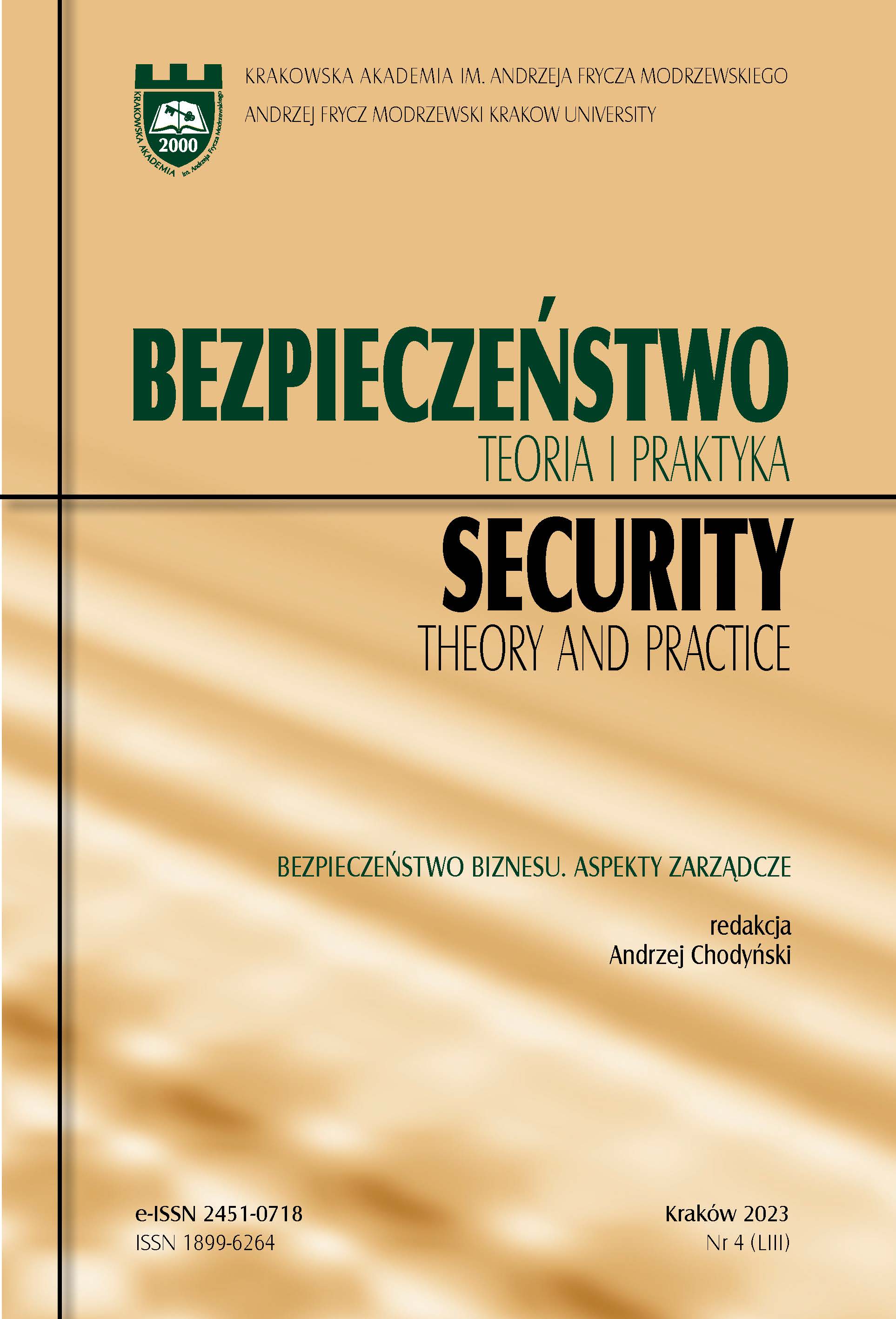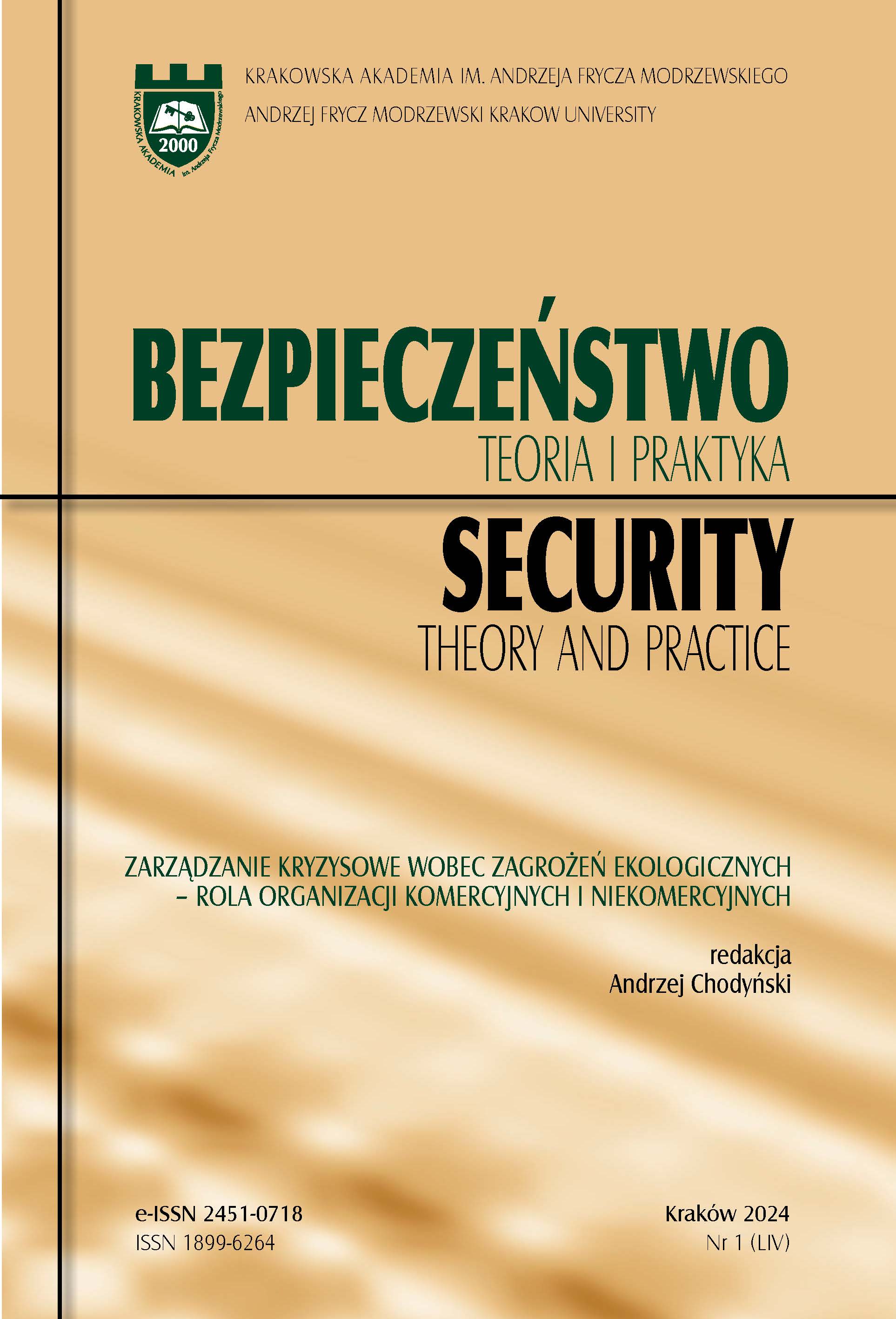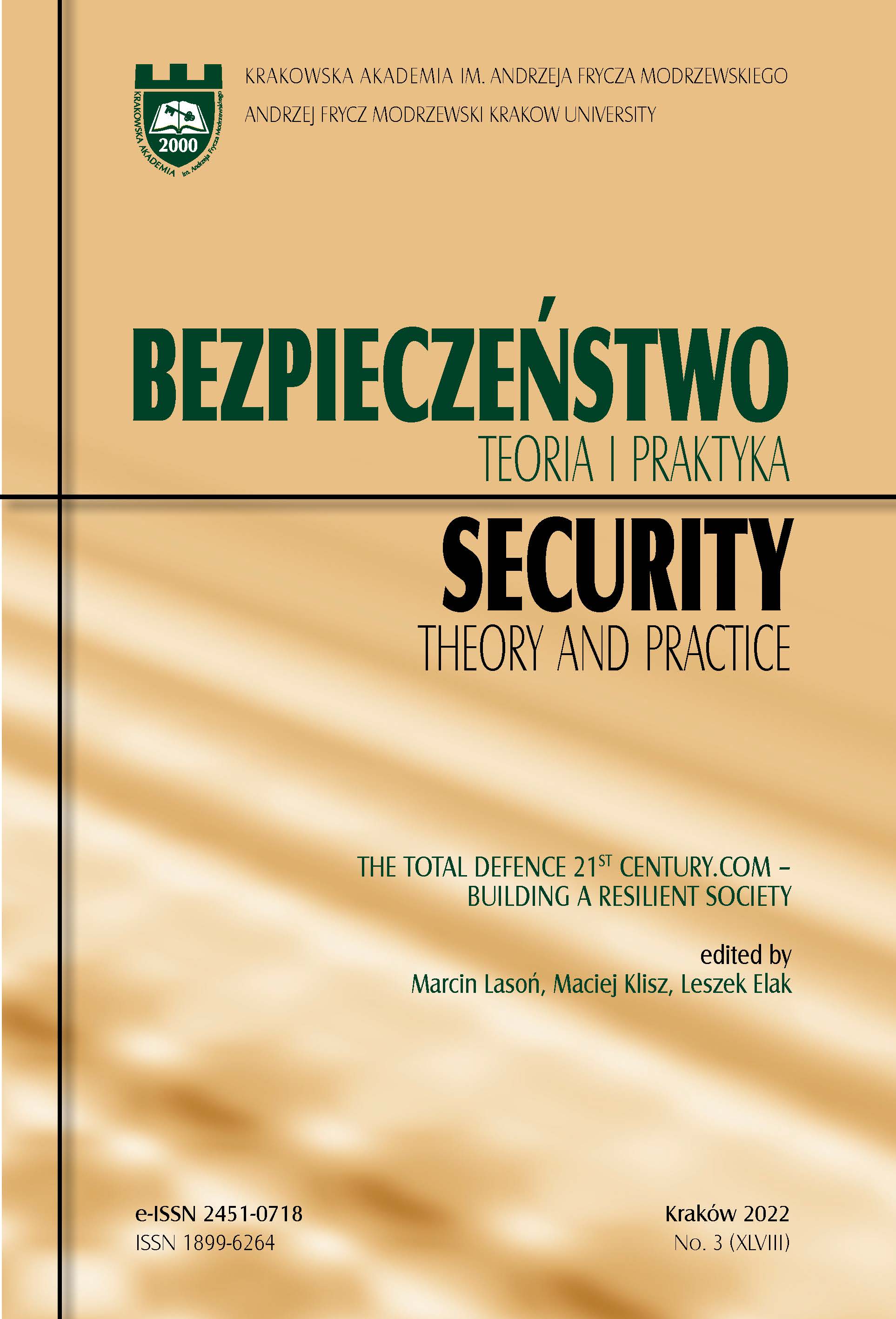
The education system in the development of total defence. Poland’s perspective
One of the key pillars of total defence is an increased social resilience to aggression, which is inextricably linked to an adequate model of security education. Poland’s security in the 21st century is based on the state’s military capacity and on the military and political alliances formed by decision-makers. However, this model of building security is not sufficient in the face of constantly changing and evolving security threats and challenges. Therefore, security should be based not only on a hard dimension, but also on a soft one, whose main pillar is security education. The idea of an effective model of security education is that, apart from giving young people theoretical knowledge, it is necessary to instil in them practical skills related to responding in crisis situations, including situations posing a threat to human health and life. Security education should constitute the first stage in training society in total defence. The educational model currently functioning in Poland definitely needs to be reformed.
More...
